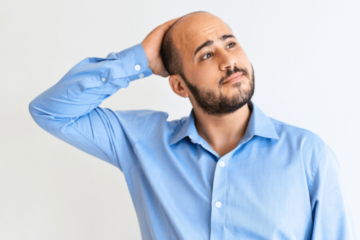The greying of hair is a natural part of the aging process, governed by the melanogenic clock. As we age, the production of melanin, the pigment responsible for hair color, decreases, leading to the onset of grey hair. While greying hair is a natural occurrence, some individuals may experience premature greying due to various factors.
One of the factors influencing premature greying is the enzyme tyrosinase, which is crucial for melanin production. Foods rich in tyrosinase, such as mushrooms, can help support melanin production and potentially slow down the greying process. Additionally, copper-containing items like oysters have been linked to melanin production, making them beneficial for maintaining hair color.
Adrenal stress is another factor that can contribute to premature greying. During periods of stress, excess hydrogen peroxide is produced, which can interfere with melanin production. Vitamin E has been found to counter the effects of hydrogen peroxide, making it a valuable nutrient for maintaining hair color. Including foods rich in vitamin E, such as leafy greens, seeds, nuts, and wheat germ oil, in your diet can help support healthy hair and combat premature greying.
Deficiencies in certain B vitamins have also been linked to premature greying. B vitamins like PABA, Biotin, and Inositol, which are sourced from the gut microbiome, play a role in melanin production. Ensuring an adequate intake of these vitamins through a balanced diet or supplementation can help prevent premature greying.
In addition to its role in countering hydrogen peroxide, vitamin E offers various health benefits. It has been associated with increased fertility, relief from hot flashes during menopause, and improved skin health, including combating premature wrinkles. Interestingly, the pituitary gland stores significant amounts of vitamin E, which can diminish during menopause. Therefore, menopausal women can benefit from maintaining optimal vitamin E levels through a diet rich in leafy greens, seeds/nuts, and wheat germ oil, or by taking a non-synthetic vitamin E complex supplement.
While there is no proven method to reverse greying hair completely, certain lifestyle changes and dietary choices can help slow down the greying process and promote overall hair health.
Here are some tips to consider:
1. Eat a balanced diet: Ensure that your diet includes a variety of nutrient-rich foods, including fruits, vegetables, whole grains, lean proteins, and healthy fats. This will provide your body with the necessary vitamins and minerals to support healthy hair.
2. Stay hydrated: Drinking an adequate amount of water each day can help keep your hair hydrated and prevent dryness, which can make grey hair appear dull.
3. Manage stress: Find healthy ways to manage stress, such as practicing mindfulness, exercising regularly, or engaging in hobbies you enjoy. High levels of stress can contribute to premature greying.
4. Avoid harsh hair treatments: Minimize the use of harsh chemical treatments, such as bleaching or excessive heat styling, as these can damage the hair and potentially accelerate the greying process.
5. Consider natural remedies: Some natural remedies, such as applying a paste of curry leaves or coconut oil to the hair, have been suggested to help slow down greying. While these remedies may not work for everyone, they are generally safe to try.
In conclusion, as we have discussed that while greying hair is a natural part of the aging process, certain factors can contribute to premature greying. By understanding the role of melanin production, managing stress levels, and ensuring an adequate intake of essential nutrients, you can potentially slow down the greying process and promote overall hair health effectively. Remember to consult with a healthcare professional or nutritionist before making any significant dietary changes or starting any new supplements.
https://www.youtube.com/watch?v=SpWVJ1nGJfoImage by Freepik

